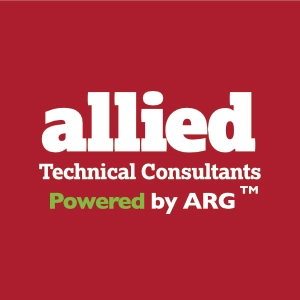Acing a technical job interview can be tough, especially when you’re up against candidates who may have similar qualifications. However, standing out doesn’t have to be a guessing game. Whether you’re applying for roles like a Facilities Manager, Civil Engineer, Project Engineer, or even a Drone Pilot, the key to success is preparation. In this post, we’ll cover five actionable tips to help you land your next technical role.
1. Understand the Role Beyond the Job Description
One of the best ways to prepare is by thoroughly understanding the role you’re applying for. Don’t just skim the job description—dive into it and try to understand the key responsibilities. Are you managing a team? Are you overseeing technical processes? Understanding the intricacies of the role, such as key systems or regulations you’ll be working with, will help you answer questions confidently.
Pro Tip: Be ready to discuss how your specific experiences, like managing projects or overseeing equipment operations, align with the position.
2. Prepare for Common Technical and Behavioral Questions
Expect a combination of technical questions and behavioral questions. In technical interviews, you’ll likely face questions about problem-solving in real-world scenarios. For example, if you’re applying for an Engineer or Project Superintendent position, you may be asked how you would troubleshoot a system failure or handle a project delay.
Behavioral questions like “Tell me about a time when you worked in a team to solve a problem” will test your collaboration skills. Use the STAR method (Situation, Task, Action, Result) to frame your answers effectively.
Pro Tip: Anticipate scenarios relevant to the role, such as managing construction timelines, overseeing a technical team, or ensuring safety in fieldwork, and practice your responses.
3. Demonstrate Your Enthusiasm for the Industry and Company
While your technical skills are critical, employers also want to know you’re genuinely interested in the work and excited about their company. This is especially important for roles like Community Development Manager or Senior Facilities Manager, where passion for the company’s mission and vision can make a difference.
Before your interview, research the company. Understand its history, major projects, and future goals. Show how your personal values and experience align with the company’s mission.
Pro Tip: Find something specific about the company that excites you. For example, if you’re interviewing for a Civil Engineer role, mention a recent project of theirs that you admire, and discuss how you could contribute to similar projects.
4. Be Ready to Talk About Your Leadership and Project Management Experience
For many technical roles, leadership and project management are just as important as technical skills. Whether you’re overseeing a Construction Superintendent team or managing a Project Engineer portfolio, employers want to know how you’ve successfully led teams or handled projects under pressure.
Be prepared to share examples where you managed teams, met deadlines, and solved challenges. Highlight how your leadership led to project success or how you ensured the quality of work in challenging conditions.
Pro Tip: Use concrete examples where you showcase your ability to manage timelines, lead technical teams, or improve operational efficiency.
5. Show Your Problem-Solving Skills with Real-World Examples
For roles like Lead Relay Technician or Mechanical Engineer, interviewers will want to know how you approach problem-solving. They may ask you to walk through how you’ve solved technical issues in the past. They’re looking for candidates who not only possess technical know-how but can also think on their feet and work independently or within teams.
Prepare examples of challenging problems you’ve faced in past roles and describe the steps you took to resolve them. Focus on the logic you used, your thought process, and the tools you employed to find solutions.
Pro Tip: If possible, relate your examples to the position you’re interviewing for. For instance, if you’re applying for a Maintenance Technician role, you could explain how you’ve fixed machinery issues or improved preventative maintenance protocols.
Conclusion
A successful technical job interview is about more than just technical knowledge. It’s about showing the interviewer that you not only have the right skills but that you’re passionate about the role, can lead teams, solve problems, and contribute to the company’s overall success. With these tips in mind, you’ll be ready to stand out in your next interview, no matter what technical field you’re pursuing.

